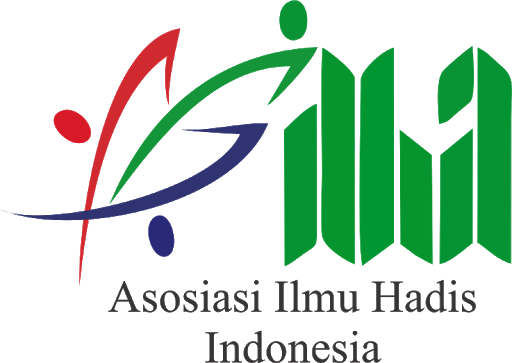Genealogi Semiotis Term Sunah Dan Bidah: Dari Syariat Hingga Ideo-Politis
DOI:
https://doi.org/10.14421/livinghadis.2018.1639Keywords:
Sunnah, Bid’ah dan Pembengkakan MaknaAbstract
This paper wants to emphasize that the ongoing debate around the term Sunnah and Bid’ah today is ideological, even political dissension. They two no longer reflect the pattern or Islamic syariah knot. Since it was mentioned by the Prophet Muhammad in his traditions, due to external encouragement and the dynamics of the problem of Muslims, this two terms have experienced an acute swelling of meaning. Based on that, through this paper I will try to track and objectify the terms of the Sunnah and Bid’ah which are already blurred and full of dust. By returning to the beginning of its appearance in the hadith, we can find the core of the real meaning of the concept of Sunnah and Bid’ah as well as the context and purpose contained in it before it is torn apart by many factors in the history of Muslim civilization.
References
Al-Abādī, M. S.-M.-K.-‘. (t.t). Al-Abādī, M. S. H. (tt). ‘Awn al-Ma’būd Sharh Sunan Abī Dāwūd. Bayrūt: Dār al-Kutub al-‘Ilmiyyah. Beirut: Dār al-Kutub al-‘Ilmiyyah.
al-Arabiyyah, M. D.-W. (1987). Buhūs wa Munāqasyah al-Nadwah “al-Turās wa Tahaddiyah al-‘Aṣr fī al-Waṭan al-Arabī: al-Aṣālah wa al-Mu’āṣarah. Beirut: Markaz Dirāsāt al-Wihdah al-Arabiyyah.
Al-Bukhārī, M. I. (1422 H). Ṣahīh al-Bukhārī. Beirut: Dār al-Ṭūq al-Najāh.
Al-Fayyadl, M. (2005). Derrida. Yogyakarta: LKiS.
Al-Jābirī, M. A. (1991). al-Turās wa al-Hadāsah: Dirasāt wa Munāqasāt. Beirut: Markaz Dirasāt al-Wihdah al-Arabiyyah.
Al-Khatib, M. A. (2009). Uṣūl al-Hadīth: ‘Ulūmuhu wa Muṣṭalahuhu. Beirut: Dār al-Fikr.
Al-Mubārakfūrī, M. A. (t.t). Tuhfah al-Ahwāzī bi Syarh Jāmi’ al-Tirmizī. Beirut: Dar al-Kutub al-‘Ilmiyyah.
Al-Nasā’i, A. b. (1986). Sunan al-Nasā’i. Halb: Maktabah al-Maṭbū’ah al-Islāmiyyah.
Al-Nawāwī, Y. b. (1392 H). al-Minhaj Syarh Ṣahīh Muslim bin Hajjāj. Beirut: Dār Ihyā’ al-Turāth al-‘Arabī.
Al-Naysābūrī, M. b. (1970). Ṣahīh Ibn Khuzaymah. Beirut: al-Maktab al-Islāmī.
Al-Qazwaynī, Y. b. (t.t). Sunan Ibn Mājah. Beirut: Dār al-Fikr.
Al-Qushayrī, M. b. (1334 H). Ṣahīh Muslim. Beirut: Dār al-Jayl.
Al-Sijistānī, S. b. (t.t). Sunan Abū Dāwūd. Beirut: Dār al-Kitāb al-’Arabi.
Al-Suyūṭī, J. (2011). Tārīkh al-Khulafā’. Beirut: Dār al-Kutub al-Islāmiyyah.
Al-Tirmiżī, M. b. (t.t). Sunan al-Tirmizī. Beirut: Dār al-Fikr.
Azami, M. (1978). Studies in Early Hadith Literature. Indianapolis: American Trust Publications.
Azami, M. (2012). Hadis Nabawi dan Sejarah Kodifikasinya. terj. Ali Mustafa Yaqub. Jakarta: Pustaka Firdaus.
Baso, A. (2016). Islam Pasca-Kolonial: Perselingkuhan Reformisme Agama, Liberalisme dan Kolonialisme. Tangerang Selatan: Pustaka Afid.
Firdausy, H. (2016). Ragam Pembacaan Hadis: Memahami Hadis Melalui Tatapan Postradisionalisme. RELIGIA, 19( 2).
Firdausy, H. (2018). Soekarno Studies: Ketika Santri Membaca Sang Proklamator. Tangerang Selatan: GDN Press.
Gobee, E., & Adriaanse, C. (1995). Nasihat-Nasihat C. Snouck Hurgronje Semasa Kepegawaiannya kepada Pemerintah Hindia Belanda 1889-1936. Jakarta: Indonesia-Netherlands Cooperation in Islamic Studies.
Kartodirdjo, S. (2015). Pemberontakan Petani Banten 1888. Depok: Komunitas Bambu.
Ṭahhān, M. (t.t). Taysīr Muṣṭalah al-Hadīs. Beirut: Dār al-Fikr.
Downloads
Additional Files
Published
Issue
Section
License
- Authors who publish with this journal agree to the following terms:
- Authors retain copyright and grant the journal right of first publication with the work simultaneously licensed under a Creative Commons Attribution License that allows others to share the work with an acknowledgement of the work's authorship and initial publication in this journal.
- Authors are able to enter into separate, additional contractual arrangements for the non-exclusive distribution of the journal's published version of the work (e.g., post it to an institutional repository or publish it in a book), with an acknowledgement of its initial publication in this journal.
- Authors are permitted and encouraged to post their work online (e.g., in institutional repositories or on their website) prior to and during the submission process, as it can lead to productive exchanges, as well as earlier and greater citation of published work.
















